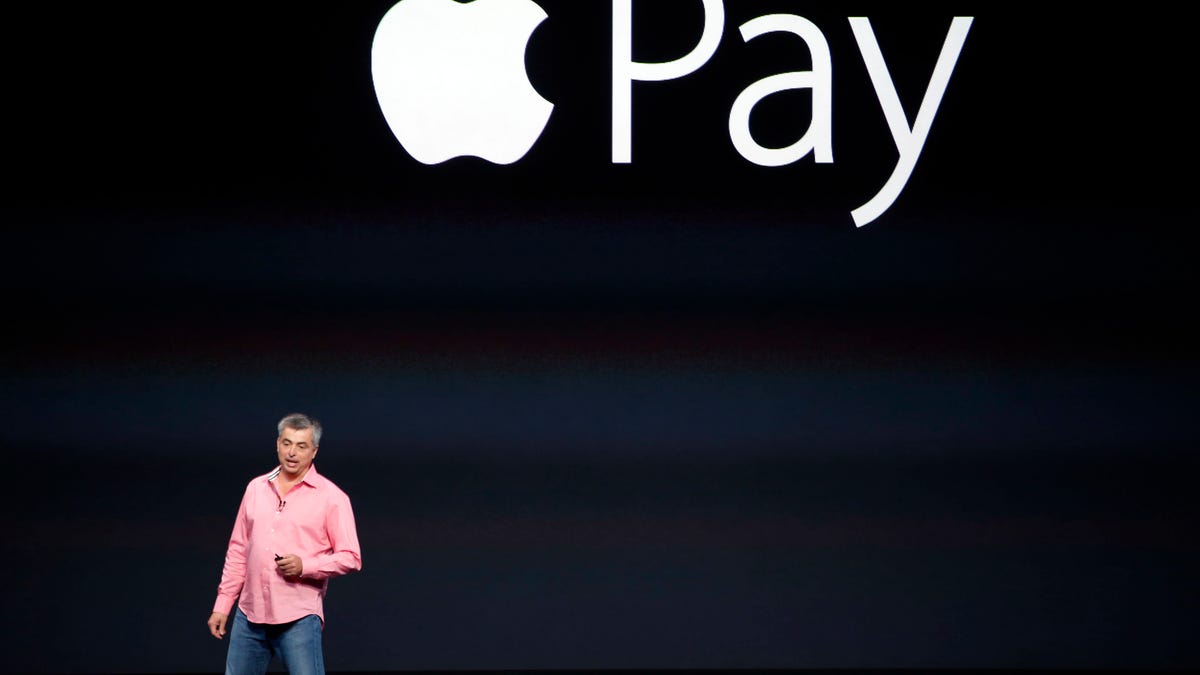
Eddy Cue, Apple;s senior vice president of Internet Software and Service, introduces Apple Pay during an Apple event at the Flint Center in Cupertino, California, September 9, 2014. (REUTERS/Stephen Lam)
American retailers and banks have, for the most part, cheerfully accepted Apple Pay with open arms. Even the U.S. government made a deal with the company. However, it seems other places are being more cautious about the mobile payments system. China’s largest credit card provider UnionPay has yet to announce a partnership with Apple, despite multiple rumors and hints from Apple CEO Tim Cook that a deal is key to the company’s ambitions for Apple Pay.
For quite some time now, Apple has been in talks with the two biggest players in the Chinese mobile payment industry: UnionPay and Alibaba’s Alipay. The American company reportedly hoped to strike a deal with either or both of the Chinese companies by March, but now talks have stalled. According to anonymous sources who are familiar with the discussions, UnionPay seems to be leery of making a deal with Apple Pay because it fears that Apple’s system may overtake its own.
Related: Apple Pay continues to expand in the U.S.
UnionPay offers NFC-based payments similar to those performed with Apple Pay to customers with Chinese bank accounts and smartphone SIM cards provided by either China Mobile or China Unicom. As it stands, UnionPay has a monopoly over NFC-based mobile payments, while Alibaba’s Alipay has control over QR-code-based mobile payments. Should UnionPay link up with Apple Pay, its own system might become irrelevant, or at the very least, threatened. Additionally, if Apple agrees to work with Alipay as well, the two Chinese competitors could end up having to work together.
“Letting Apple Pay enter China will have a profound impact,” a financial-sector source told Caixin Online. “For UnionPay, cooperating with Apple means opening its settlement system. It would be hard to say who’s in control … UnionPay definitely wants to keep a grip on the system.”
To make matters more complicated, it seems that Chinese government regulators may also have issues with Apple Pay on the technology level. Apparently, NFC chips that are used in mobile payments in China must meet with a technical standard called PBOC 3.0. Apple’s iPhone 6 and 6 Plus reportedly meet some of those standards, but not all of them. Of course, it’s possible that Apple may willingly alter its chips to meet China’s requirements of that helps speed up the process.
Related: Tim Cook talks up Apple Pay, says it may come to China
“Apple is seeking to cooperate with Chinese financial institutions,” a People’s Bank of China (PBOC) official said.
Additionally, China allegedly wants Apple to establish a mainland China data center to keep its Chinese customers’ information safe from hackers. A support center would also be required, so as to ensure that Chinese Apple Pay users have access to assistance, should any problems arise. Apple may also be asked to lower the amount of fees it collects from transactions made with its system in China, sources say.
At this point, it’s impossible to say whether Apple will agree to China’s terms, or if UnionPay will deign to support the rival mobile payment system at all. We’ll continue to update this post as the saga continues.
